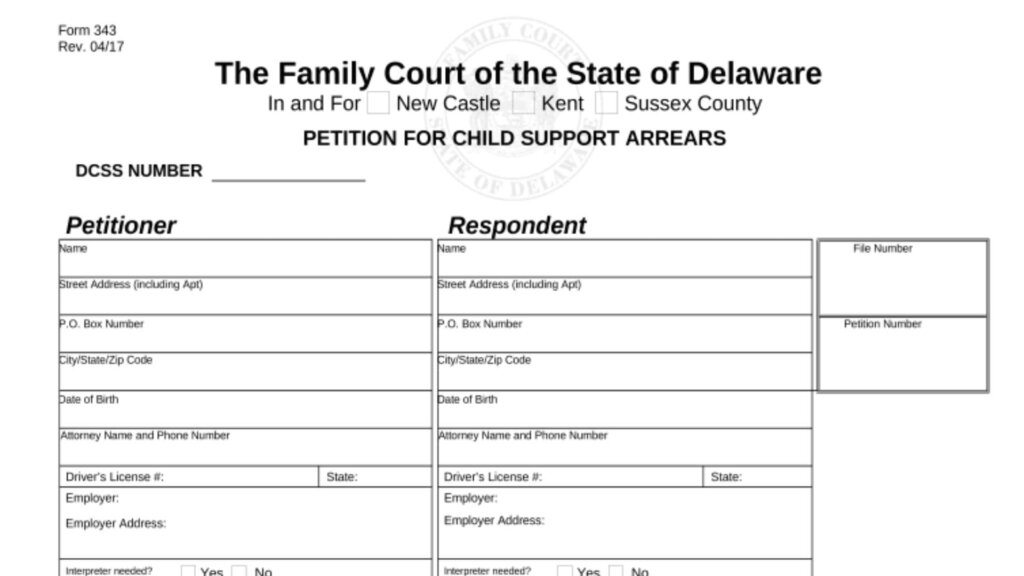
Whether you are going through a divorce or you and your partner have ended your relationship, both parents have an obligation to financially support their children. This financial responsibility does not end with the end of a marriage or partnership and continues until the child reaches the age of majority or becomes emancipated.
Delaware’s Division of Child Support Services works with the Family Court system to enact child support orders that follow a complex formula. The formula takes into account the parent’s net available income after taxes and other deductible expenses, including a self-support allowance.
A court may deviate from this guideline when it is in the best interests of the child and the parents. However, the deviation must be carefully explained to the judge. A judge can also modify a child support order within two and a half years of the original order as long as the parties demonstrate a change in circumstances that impacts the child’s well-being. This may include the birth of a new child, changes in health insurance costs, or a significant increase or decrease in a parent’s income.
Delaware Child Support Eligibility
Parents have an obligation to support their children. State law provides a way for them to do this through a child support order determined by a state court. The Division of Child Support Services helps individuals obtain and enforce this type of court order.
The state’s child support guidelines require that both parents contribute to the costs of raising their children. These costs include basic housing (such as paying to support a lease or rent payment), basic food (to cover grocery expenses), non-luxury clothing, and regular transportation. Child care costs are also included as a mandatory deduction in Delaware child support payments.
In addition, the state factors in the number of overnights a parent hosts for their children. However, unlike some states, a parenting time credit only figures into sole physical custody cases; it doesn’t figure into joint physical custody calculations.
The amount of child support payments are established using a formula that takes into account both parents’ incomes and the needs of their children. Generally, the higher earner pays the lower earner. A judge can review the child support order after two years or if either parent’s circumstances significantly change.

Delaware Child Support Application
The first step in obtaining child support is to file an application with the Department of Child Support Services (DCSS). Once this form has been completed, the DCSS will collect additional information about both parties. This may include copies of tax returns, schedules, and other forms that document income. The DCSS will also request copies of medical insurance cards and receipts for significant expenses.
Most cases go to mediation at the Family Court Commissioner level, where both parents meet with a mediator to try and agree on a child support amount. If this isn’t possible, the case will go to trial, and the judge will decide on an appropriate amount based on Delaware’s Child Support Formula Calculation. If the identity of the father is disputed, it will be necessary to complete a paternity test. This process can take up to a year.